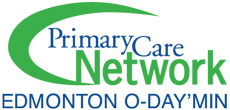Bringing Attention to Hypertension
by Jenny Pasanen, Registered Dietitian
Do you know what the leading risk factor for death worldwide is? It’s hypertension!
Every May is Hypertension Month, so in honour of that let’s learn a bit about what we can do to manage it.
There are many risk factors for hypertension, but the ones we have some control over include stress, physical activity, diet, alcohol, tobacco, and sleep.
Stress
An emotionally upsetting event or chronic stress could be triggers for increased blood pressure. Learning how to manage problems and cope with stressful situations can help improve your blood pressure. Consider participating in stress-reducing activities such as:
- Talk to a mental health professional
- Participate in a stress/anger management program
- Practice meditation/mindfulness
- Try relaxation techniques such as progressive muscle relaxation or deep breathing exercises
- Connect with friends, family, community or religious/spiritual support systems
Physical Activity
When you do aerobic activities that get your heart rate up and resistance training to strengthen your muscles, you are also exercising your blood vessels. If your blood vessels are strong, flexible, and healthy, they do a much better job of regulating your blood pressure.
Diet
Eating too much salt raises blood pressure, while many nutrients including potassium, calcium, and magnesium can help to keep it under control. Most of our salt intake comes from processed and restaurant foods so cooking from scratch is a great way to tackle hypertension. Vegetables, fruits, nuts, and whole grains are rich in the minerals that help protect against hypertension. If you’re looking for more specifics, the DASH (Dietary Approaches to Stop Hypertension) diet has the most research to support lowering blood pressure and the Mediterranean diet (which is quite similar) is also effective.
Alcohol
Drinking too much alcohol can raise your blood pressure both temporarily and in the long term. We probably all know that women should have no more than two drink per day and men should have no more than three drinks per day. If you currently drink more than that, try gradually reducing your intake or increasing the number of days without alcohol per week to help reduce your risk.
Tobacco
Smoking is one of the strongest risk factors for hypertension. Nicotine is a drug that raises blood pressure and smoking can damage the structure and function of blood vessels. If you’re interested in reducing how much you smoke or quitting altogether, check out albertaquits.ca for information and online support to help you on your journey.
Sleep
Sleep helps heal and repair your heart and blood vessels. Sleep deficiency – not getting enough quality sleep over time – can raise your risk of hypertension. To improve your sleep habits, first make sure that you allow yourself enough time to sleep – most adults need 7-9 hours every night. It may help to:
- Go to bed and wake up at the same time every day
- Avoid nicotine, caffeine, alcohol, and exercise before bed
- Use the hour before bed for quiet time, avoiding bright light
- Take a hot bath or use relaxation techniques before bed
- Keep your bedroom quiet, cool, and dark
Hypertension is a common, yet complex disease with many contributing factors but there are many steps we can take to reduce the risk. Pick one thing to work on starting now and you could be reaping the benefits sooner than you might expect!
From Hypertension.ca
WHAT IS HIGH BLOOD PRESSURE?
Hypertension is the medical term used to describe high blood pressure. Blood pressure is the force of the blood pumped from the heart against the blood vessels. This force makes blood flow possible, delivering nutrients and oxygen to organs and tissues throughout the body.
Hypertension occurs when there is too much pressure in your blood vessels. This can damage your blood vessels and cause health problems. Anyone can develop high blood pressure, but it becomes more common as you get older.
Related links:








